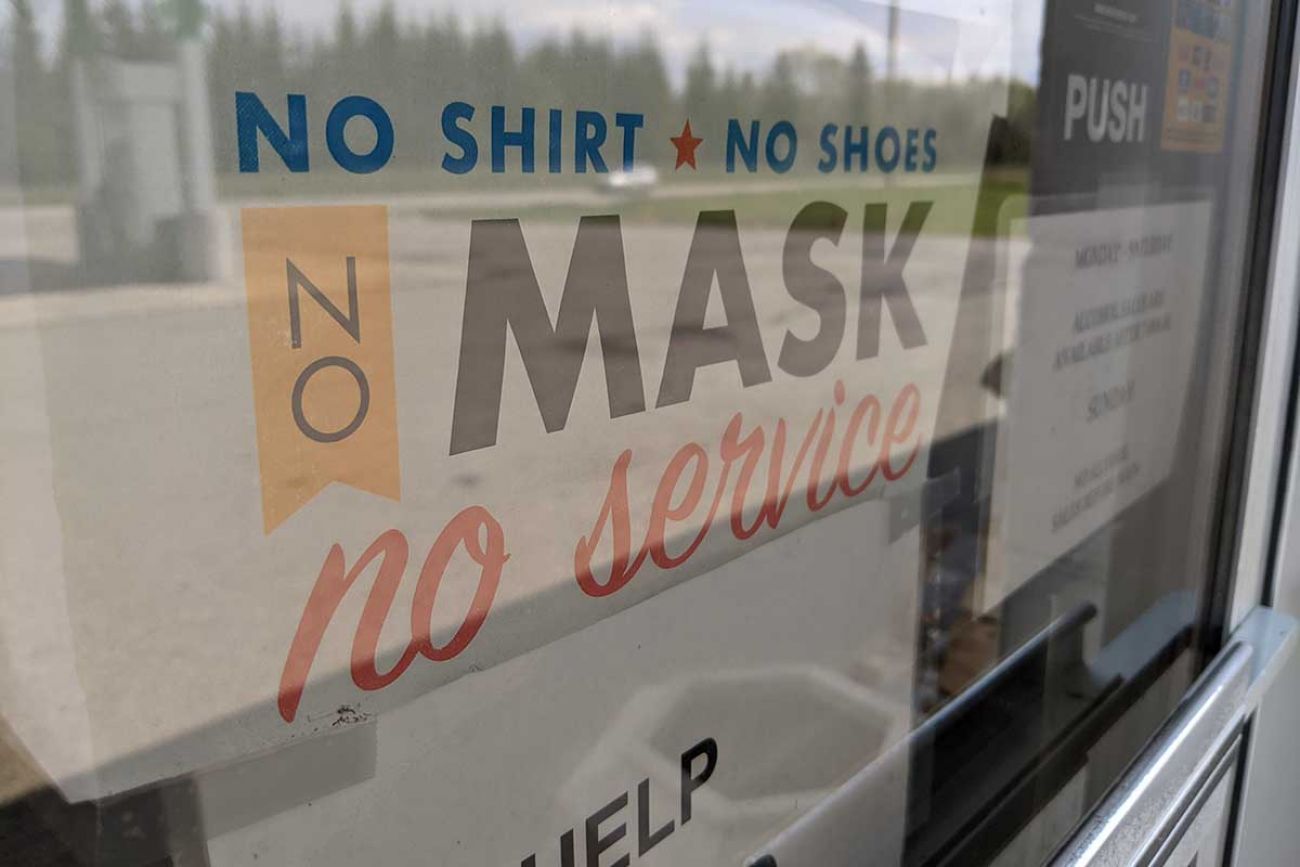Michigan recommends masks for businesses, as fears rise of fourth COVID wave

Aug. 18: In Michigan, the COVID increase isn’t just among the unvaccinated anymore
Aug. 17: Michigan GOP eyes limits to vaccine, mask rules. Health officials dismayed
LANSING— As the Delta variant increases COVID cases in Michigan, the state is “strongly” encouraging employers to require masks for employees and visitors.
The Michigan Occupational Safety and Health Administration (MIOSHA) announced its suggestion Thursday, based on the latest recommendation of the Centers for Disease Control and Prevention, which establishes that even vaccinated people need to wear masks indoors in areas with high or substantial transmission rates.
“As transmission rates accelerate rapidly in many Michigan counties, Michigan employers should monitor the spread of COVID-19 in their local communities and follow the CDC’s guiding principles for both fully vaccinated and unvaccinated people to ensure we are all doing our part to keep workplaces safe for employees and customers,” COVID-19 Workplace Safety Director Sean Egan said in a news release Thursday.
Related stories:
- Grand Traverse bans vaccine mandates — and wants whole country to know
- State’s top doc to Whitmer: School mask mandate would reduce COVID in Michigan
- COVID boosters likely coming to Michigan in September. What to know.
- Michigan school mask tracker: Find rules in your district
- Michigan colleges set fall requirements for masks and COVID-19 vaccines
- Vaccine mandates increase among Michigan employers. What you need to know.
Rule changes may come, however.
Bobby Leddy, spokesperson for Gov. Gretchen Whitmer, told Bridge Michigan the administration anticipates “revising the policy regarding face coverings for State of Michigan employees to more closely align with the CDC’s recommendation.”
The MIOSHA announcement comes two months after the agency rolled back all workplace regulations, except for employers in medical settings — and as immunologists are predicting a fourth wave of COVID in Michigan this fall.
Since mid-July, cases and positivity have climbed steadily in Michigan and soared elsewhere in the United States. By Wednesday this week, Michigan was averaging 1,164 cases a day.
The percentage of positive COVID has climbed to more than 7 percent from 2 percent in early July, while hospitalizations have increased to 859 from 300.
State statistics show the current increase in Michigan is largely affecting those who have not been vaccinated. From January to July 15, 98 percent cases are among those who haven’t had shots, while 95 percent of those who have been hospitalized were not fully vaccinated.
Modeling scenarios released this week from the University of Michigan, meanwhile, anticipate a surge “potentially similar in size to spring” because vaccines are leveling off.
In April, daily COVID hospitalizations surpassed 4,000, while projections predict 2,400 to 2,800 people could die from August through November if vaccinations stagnate and social movement continues.
That is a worst-case scenario, said Josh Petrie, an epidemiologist at the University of Michigan School of Public Health. He said vaccinations should blunt the severity of cases and children — while they can get very sick — continue to be hospitalized at much lower rates
“There are unknowns around every corner,” he said.
Businesses brace for increase
Michigan’s recommendations for employers come as many businesses are starting to look ahead to autumn. There is some assumption among business leaders that rates will increase in Michigan.
Restaurants, hotels and banquet facilities are starting to get cancellations for larger events in the fall, said Justin Winslow, president and CEO of the Michigan Restaurant and Lodging Association.
The industry has to consider the end of summer and “what does it mean if we start to move indoors and at the same time and we start to see concerning numbers from COVID? What does that do to people’s … willingness to dine indoors again.”
Many national retailers — including Home Depot, Target and Walgreens — require masks for employees, though rules for customers in many cases follow state and CDC guidelines.
Local retailers are “in this holding pattern,” said Jennifer Rook, spokesperson for the Michigan Retail Association. “They’re watching what happens (with the virus).”
Most customers who are vaccinated are no longer used to wearing a mask, Rook said, and many employers recall the “mask wars” of 2020 when retail employees had to enforce state rules within stores and conflicts were reported.
“They don’t want to put their employees at risk again,” Rook said.
Caution, not alarm
As of late June, MIOSHA had received over 15,000 complaints from employees who said there were uncontrolled COVID-19 hazards in the workplace. At different points in the pandemic, outbreaks have raged in nursing homes, prisons, manufacturing facilities and other workplaces.
Employers have reported at least 64 workplace deaths from COVID-19 in Michigan, according to the state.
Egan, with MIOSHA, said outbreaks among businesses remain low.
“There’s reason for caution but not alarm,” Egan said. “Delta transmits easier. We need to be more aware; we need to reinstitute some of these mitigation strategies.
“But if we continue to wear face coverings, social distance, not go to work when we’re sick, we can keep this in check.”
See what new members are saying about why they donated to Bridge Michigan:
- “In order for this information to be accurate and unbiased it must be underwritten by its readers, not by special interests.” - Larry S.
- “Not many other media sources report on the topics Bridge does.” - Susan B.
- “Your journalism is outstanding and rare these days.” - Mark S.
If you want to ensure the future of nonpartisan, nonprofit Michigan journalism, please become a member today. You, too, will be asked why you donated and maybe we'll feature your quote next time!



